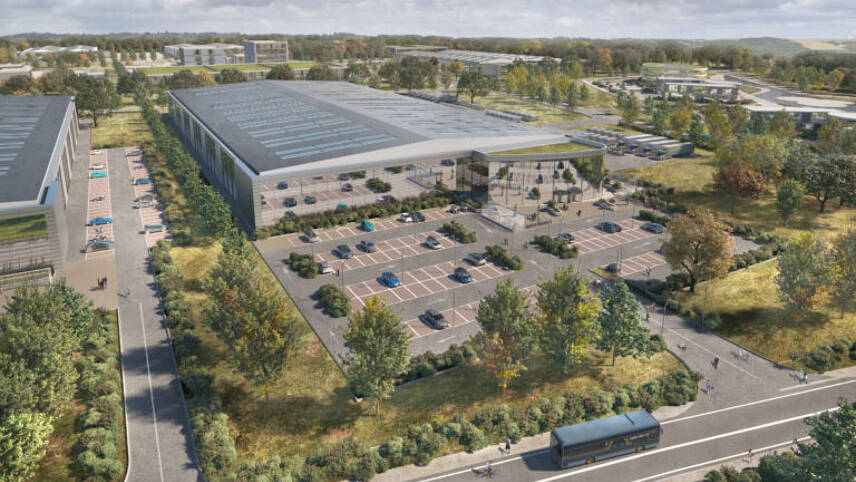Register for free and continue reading
Join our growing army of changemakers and get unlimited access to our premium content

Image: Gravity Smart Campus. Pictured: An artist's impression of the Campus
The plant, set to be the UK’s largest Gigafactory for electric vehicle (EV) batteries, will be located at the Gravity Smart Campus – a 600+-acre industrial estate being developed on the site of the former Royal Ordnance Factory.
Preliminary works at the site have already begun. Tata Group’s global battery business Agratas intends to start work on the factory’s foundations in the coming months and is targeting first battery production in 2026.
Once the factory is at full capacity in the early 2030s it should produce 40GWh of batteries each year. Batteries will primarily be supplied to automakers, with JLR and Tata Motors confirmed today as the first customers.
Ahead of the foundations being laid, Agratas will hold an introductory event and invite local residents and organisations to learn more about the Gigafactory and the company more broadly.
Agratas’ chief executive Tom Flack said: “Our multi-billion-pound investment will bring state-of-the-art technology to Somerset, helping to supercharge Britian’s transition to electric mobility whilst creating thousands of jobs in the process.
“We care deeply about the communities we operate in, so it’s imperative to us that we work with, and listen to, our new neighbours as we build our factory in Somerset.”
Tata Group first confirmed its plans to build a UK-based Gigafactory in July 2023 and touted a £4bn investment. The UK Government reportedly provided a “significant” subsidy to get this decision over the line, but a figure has not been confirmed.
Home-grown Gigafactories
The UK Government has been urged several times to set more robust plans for growing the nation’s EV Gigafactory stock this decade, to avoid relying on imports and therefore missing out on opportunities for green job creation and international battery trade.
These calls to action have only intensified since Britishvolt collapsed into administration last year – which means that the Gigafactory planned for Blyth, Northumberland, is likely to produce larger batteries if it does go ahead.
Earlier this month, the Business and Trade Committee released the UK Government’s response to its Batteries and Electric Vehicles report. MPs on the Committee argued that the response was lacklustre.
They had been hoping for more information on direct financial support for gigafactories, measures for Gigafactories to access energy, targeted support for suitable Gigafactory locations, funding for skills, tariff-free market access and further interventions to de-risk mineral supply chains, per the Critical Minerals Strategy.
Related article: Is the UK losing out in the global EV race?


Please login or Register to leave a comment.